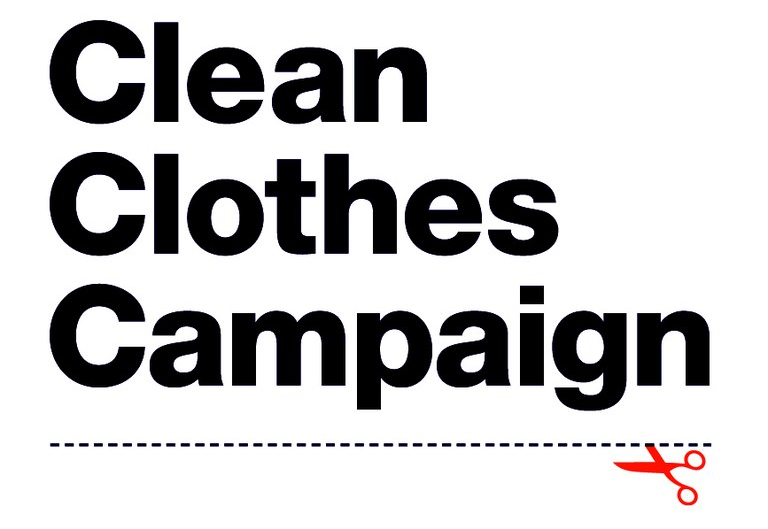Search results
21 results
Sort by:
European Coalition
Stitched Up
New report released by Clean Clothes Campaign shows that garment workers in Eastern Europe and Turkey are paid poverty wages and many have to work second or third jobs to be able to live.
European garment workers face forced overtime and poverty wages
The text “Made in Europe” on a label is frequently perceived as a guarantee of good working conditions in the production of garments. However, two new country researches of Clean Clothes Campaign into working conditions in Poland and the Czech Republic show that workers in the garment industry in the European Union get poverty wages and are confronted with forced overtime which sometimes goes unpaid.
Victory: Company drops legal case against Romanian journalist reporting on dire working conditions
An international campaign convinced the Italian-owned factory Maglierie Cristian Impex in Romania to drop the trial against a Romanian investigative journalist for reporting on dire working conditions in one of the largest producers of garments in Romania. The factory employs around 900 people and produces for luxury brands such as Tommy Hilfiger, Marco Polo and LaCoste, but also for high street fashion brands such as Zara and Bershka.
Report finds ‘Made in Europe’ label tied to garment and shoe production in European sweatshops
A new report published today by the Clean Clothes Campaign, Europe's Sweatshops, documents endemic poverty wages and other stark working conditions in the garment and shoe industry throughout Eastern and South-Eastern Europe. Despite working overtime, many workers in the Ukraine for example make just EUR 89 a month, where a living wage would have to be five times that much. Among customers of the factories are fashion brands like Benetton, Esprit, GEOX, Triumph and Vera Moda.
German brands' practices force European garment factories to risk workers' lives amidst a pandemic
A shocking investigation from Clean Clothes Campaign and Germany based Bread for the World reveals that around 120,000 labourers across Europe are being forced to work in high risk environments in spite of workplace closures globally.
European parliament committee can bring real change to European garment workers' wages
Almost one million garment workers in seven of the European Union's low wage member states would profit directly from a strong and effective EU minimum wage directive. An additional 1.5 million garment workers in eight other European countries would indirectly benefit from this directive. Already now, the discussion on the directive is encouraging national debates in these countries on adequate minimum wages which would enable a decent living of workers.
Formal feedback on the EU Commission’s proposed directive as of December 2020
Full statement on the amended proposal of the committee’s rapporteurs as of April 2021.
Exploitation made in Europe
Germany is one of the world’s largest importers and exporters of garments. German fashion brands and retailers are the primary buyers of fashion items from Ukraine and Bulgaria, as well as the second most important buyers from Croatia and Serbia. For this study, workers from different suppliers of German brands and retailers in Ukraine, Serbia, Croatia and Bulgaria were interviewed.
Europe's Sweatshops
2017 presentation highlighting the wage gap in the garment and shoe industry in Central, East and South East Europe
Workers Voices - The situation of women in the Eastern European and Turkish garment industries
Research on working conditions in Eastern Europe and Turkey based on over 250 interviews with (women) workers. Written by Kampagne fur Saubere Kleidung and Clean Clothes Campaign, 2005.
Made in Eastern Europe
Publication from 2004 about the emergence of booming "fashion colonies" in Eastern Europe. Lots of women are toiling away in the name of fashion, which is not unlike what is happening in many Asian, Central American, and African countries. Although this booming garment industry raises the hopes of many people, the seamstresses, the actual workers are left out in the cold while fashion multinationals turn a handsome profit.
Stitched Up: Poverty wages in the garment industry in Eastern Europe and Turkey
This is an in depth research report on the situation facing garment workers in 10 countries, busting the myth that "Made in Europe" means better wages and conditions. The report was made in 2014.
Stitched Up - Turkish version
Poverty wages in the garment industry in Eastern Europe and Turkey. An in depth research report from 2014 on the situation facing garment workers in 10 countries. Busting the myth that "Made in Europe" means better wages and conditions.
Sample letter Hugo Boss 2020 Exploitation made in Europe
Europe Floor Wage Ukraine
Exploitation made in Europe visual - Ukraine
Gerry Weber supplier
Exploitation made in Europe visual
Exploitation made in Europe visual Ukraine
Gerry Waber supplier
Europe Floor Wage
A living wage benchmark for European garment workers.
